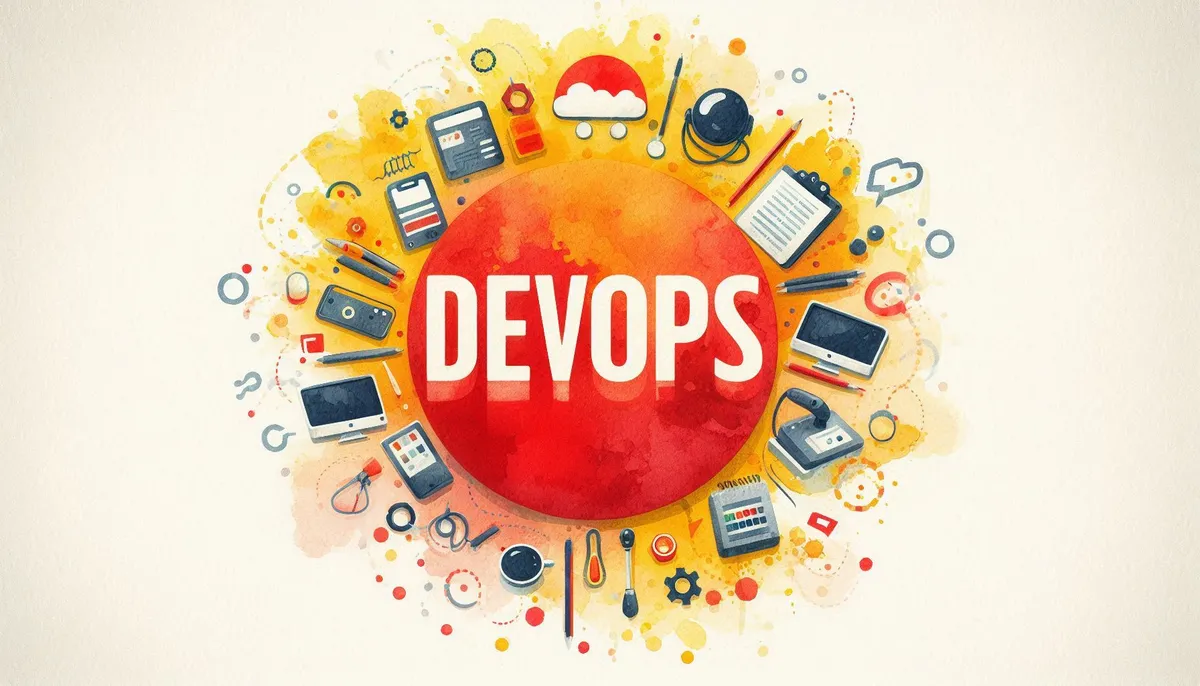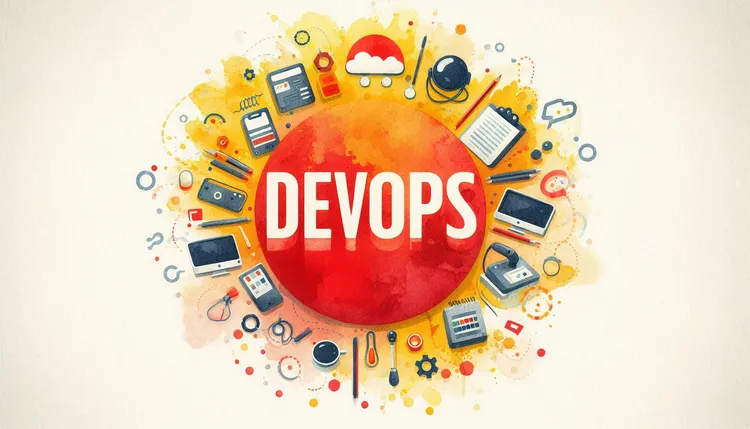DevOps Sessions - Week 17 - Compliance & Governance
devops compliance governance 21-11-2024

DevOps Sessions - Week 17 - Compliance & Governance
Welcome to Week 17 of our “Becoming a DevOps Engineer” series! This week, we will focus on compliance and governance, critical aspects of DevOps that ensure your processes, applications, and infrastructure adhere to regulatory standards and organizational policies. Effective compliance and governance strategies help mitigate risks, protect data, and maintain operational integrity. Let’s dive in!
Session Overview
1. Introduction to Compliance & Governance
- What are Compliance & Governance?
- Importance in DevOps
2. Key Compliance Standards
- General Data Protection Regulation (GDPR)
- Health Insurance Portability and Accountability Act (HIPAA)
- Payment Card Industry Data Security Standard (PCI DSS)
3. Governance in DevOps
- Defining Policies and Procedures
- Automating Governance with Infrastructure as Code (IaC)
- Monitoring and Auditing
4. Tools for Compliance & Governance
- AWS Config
- Azure Policy
- Google Cloud Security Command Center
- HashiCorp Sentinel
5. Practical Examples
- Enforcing Compliance with AWS Config Rules
- Automating Policy Enforcement with Azure Policy
6. Best Practices for Compliance & Governance
- Continuous Compliance
- Risk Management
- Documentation and Reporting
1. Introduction to Compliance & Governance
What are Compliance & Governance?
- Compliance refers to adhering to laws, regulations, and standards that apply to your business and industry. It involves implementing controls to ensure data privacy, security, and integrity.
- Governance encompasses the policies, procedures, and processes that guide decision-making and ensure that an organization’s operations align with its objectives and compliance requirements.
Importance in DevOps
- Risk Mitigation: Reduces the risk of data breaches and non-compliance penalties.
- Operational Integrity: Ensures that systems operate as intended and changes are managed effectively.
- Data Protection: Safeguards sensitive information against unauthorized access and misuse.
- Trust and Reputation: Builds trust with customers and stakeholders by demonstrating a commitment to compliance and governance.
2. Key Compliance Standards
General Data Protection Regulation (GDPR)
- Scope: Applies to organizations that process personal data of EU citizens.
- Requirements: Includes data protection principles, individual rights, and obligations for data controllers and processors.
- Penalties: Non-compliance can result in significant fines (up to €20 million or 4% of annual global turnover).
Health Insurance Portability and Accountability Act (HIPAA)
- Scope: Applies to healthcare providers, health plans, and healthcare clearinghouses in the United States.
- Requirements: Mandates safeguards to ensure the confidentiality, integrity, and availability of protected health information (PHI).
- Penalties: Non-compliance can result in civil and criminal penalties, including fines and imprisonment.
Payment Card Industry Data Security Standard (PCI DSS)
- Scope: Applies to organizations that handle credit card transactions.
- Requirements: Specifies security measures for protecting cardholder data, including encryption, access control, and monitoring.
- Penalties: Non-compliance can result in fines, increased transaction fees, and loss of the ability to process credit card payments.
3. Governance in DevOps
Defining Policies and Procedures
- Policy Definition: Establish clear policies for security, data management, access control, and change management.
- Procedure Implementation: Develop detailed procedures to enforce these policies, including roles and responsibilities.
Automating Governance with Infrastructure as Code (IaC)
- IaC Benefits: Automates the provisioning and management of infrastructure, ensuring consistency and repeatability.
- Governance Automation: Use IaC tools like Terraform, AWS CloudFormation, or Azure Resource Manager to enforce governance policies during the deployment process.
Monitoring and Auditing
- Continuous Monitoring: Implement continuous monitoring to detect and respond to compliance violations in real-time.
- Auditing: Regularly audit systems and processes to ensure ongoing compliance and identify areas for improvement.
4. Tools for Compliance & Governance
AWS Config
- Overview: AWS Config is a service that tracks AWS resource configurations and changes over time.
- Features: Provides configuration history, compliance checks, and resource relationships.
- Use Case: Enforce compliance with custom AWS Config rules to ensure resources meet organizational policies.
Azure Policy
- Overview: Azure Policy is a service that enables you to create, assign, and manage policies to enforce rules and ensure compliance.
- Features: Includes built-in and custom policies, policy assignments, and compliance tracking.
- Use Case: Automate policy enforcement for resource configurations, tagging, and security.
Google Cloud Security Command Center
- Overview: Google Cloud Security Command Center (SCC) is a centralized platform for managing security and risk across Google Cloud resources.
- Features: Provides asset inventory, threat detection, and security analytics.
- Use Case: Monitor and manage security risks, enforce compliance, and gain insights into the security posture of your cloud environment.
HashiCorp Sentinel
- Overview: HashiCorp Sentinel is a policy as code framework that integrates with HashiCorp tools like Terraform, Vault, and Consul.
- Features: Allows you to write policies in a high-level language and enforce them during infrastructure provisioning and management.
- Use Case: Ensure compliance and governance in IaC workflows by defining and enforcing policies programmatically.
5. Practical Examples
Enforcing Compliance with AWS Config Rules
-
Create an AWS Config Rule:
- Go to the AWS Config console.
- Select “Add rule” and choose a managed rule (e.g.,
s3-bucket-public-read-prohibited). - Configure the rule and set up notifications for non-compliance.
-
Monitor Compliance:
- Use the AWS Config dashboard to monitor compliance status.
- Set up automated remediation actions for non-compliant resources.
Automating Policy Enforcement with Azure Policy
-
Create a Policy Definition:
- Go to the Azure Policy service in the Azure Portal.
- Select “Definitions” and create a new policy definition.
- Define the policy rule (e.g., require a specific tag on all resources).
-
Assign the Policy:
- Assign the policy to a scope (e.g., subscription, resource group).
- Configure the assignment parameters and remediation tasks.
-
Monitor Compliance:
- Use the Azure Policy dashboard to track compliance status.
- Review non-compliant resources and take corrective actions.
6. Best Practices for Compliance & Governance
Continuous Compliance
- Automated Checks: Implement automated compliance checks in CI/CD pipelines to detect issues early.
- Real-Time Monitoring: Use real-time monitoring tools to ensure ongoing compliance with policies and regulations.
Risk Management
- Risk Assessment: Regularly assess risks and update policies and controls accordingly.
- Incident Response: Develop and test incident response plans to handle compliance violations and security breaches.
Documentation and Reporting
- Comprehensive Documentation: Maintain detailed documentation of policies, procedures, and compliance efforts.
- Regular Reporting: Generate regular compliance reports for internal and external stakeholders.
Popular Compliance & Governance Tools
- AWS Config: For configuration tracking and compliance checks.
- Azure Policy: For policy management and enforcement in Azure environments.
- Google Cloud SCC: For centralized security and compliance management in Google Cloud.
- HashiCorp Sentinel: For policy as code and governance in IaC workflows.
- Terraform Cloud: For collaborative IaC management with built-in policy enforcement.
By mastering compliance and governance with tools like AWS Config, Azure Policy, Google Cloud Security Command Center, and HashiCorp Sentinel, you can ensure that your DevOps processes, applications, and infrastructure adhere to regulatory standards and organizational policies. Stay tuned for next week’s session, where we will explore security with DevSecOps. Happy governing!

